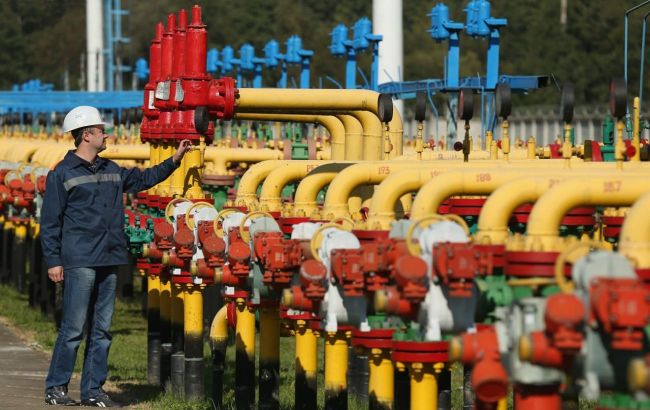'Trump's plan' for partnership with Ukraine: Telegraph reveals text of agreement from US
 The US seeks to take control of Ukraine's natural resources (photo: Getty Images)
The US seeks to take control of Ukraine's natural resources (photo: Getty Images)
The text of the partnership agreement with Ukraine provided by the US suggests an attempt by the US to take control of half of the country’s natural resources. The proposed contract is seen as an effort to pressure war-weary Ukraine purely for commercial interests, according to The Telegraph.
The Telegraph obtained a draft of the preliminary agreement marked as "Privileged and Confidential," dated February 7, 2025.
According to the draft contract, the US offers Ukraine a deal worth $500 billion. The agreement involves the management of Ukrainian rare earth minerals, as well as ports, infrastructure, and most of the country's resources, including oil and gas.
Furthermore, the document states that the US and Ukraine are to establish a joint investment fund to ensure that hostile parties to the conflict do not benefit from the restoration of Ukraine.
The publication noted that President Zelenskyy himself proposed the idea of granting the US a direct stake in Ukraine's rare earth elements and critical minerals during his visit to Trump Tower in September last year, hoping to pave the way for continued arms shipments. He expected this to lead American companies to begin operating in the region, creating political leverage that would deter Vladimir Putin from launching another attack.
Some mineral deposits are located near the front line in eastern Ukraine or in Russian-occupied territories. Zelenskyy emphasized the danger of strategic reserves of titanium, tungsten, uranium, graphite, and rare earth metals falling into Russian hands. “If we are talking about a deal, then let’s do a deal, we are only for it,” said the president.
Not a very favorable deal
The Telegraph suggests that the head of state did not expect to face terms typically imposed on defeated aggressor states after a war. These conditions, according to the publication, are even harsher than the financial sanctions imposed on Germany and Japan following their defeat in 1945, when both countries eventually became net recipients of funds from the victorious Allies.
"If this draft were accepted, Trump’s demands would amount to a higher share of Ukrainian GDP than reparations imposed on Germany at the Versailles Treaty, later whittled down at the London Conference in 1921, and by the Dawes Plan in 1924. At the same time, he seems willing to let Russia off the hook entirely," the publication writes.
Additionally, under the agreement, the US would receive 50% of the profits from the extraction of natural resources and 50% of the value of new licenses, should Ukraine issue new licenses to third parties.
Washington would also have a preferential right to purchase exported minerals. The agreement would be governed by New York law, and the US would have sovereign immunity. The American fund would have exclusive rights to determine the terms of future investment projects.
"In fact the five packages agreed by Congress total $175bn, of which $70bn was spent in the US on weapons production. Some of it is in the form of humanitarian grants, but much of it is lend-lease money that must be repaid," The Telegraph notes.
Value of metals and commercial interests
Ukraine is likely to possess the largest lithium deposit in Europe. However, lithium prices have fallen by 88% since the bubble burst in 2022, and large deposits are being discovered worldwide. The McDermitt Caldera in Nevada is considered the largest lithium deposit on the planet, with reserves of 40 million metric tons, enough for the US to surpass China.
The Telegraph also notes that Ukraine has cobalt, but most electric vehicle batteries currently use lithium iron phosphate and no longer require cobalt. Additionally, sodium-ion and sulfur batteries will limit future growth in lithium demand, as will recycling. The narrative of a mineral shortage, according to the Telegraph, is greatly exaggerated.
Given this situation, the newspaper writes that Ukraine is unable to meet the US president's demand for $500 billion in any meaningful timeframe.
"In genuine commerce the other side can usually walk away. Trump’s demand is iron-fist coercion by a neo-imperial power against a weaker nation with its back to the wall, and all for a commodity bonanza that exists chiefly in Trump’s head. Zelenskyy does not have that luxury. He has to pick between the military violation of Ukraine by Putin, and the economic violation of Ukraine by his own ally," The Telegraph concluded.
Trump's agreement on rare earth metals
Ukraine and the US are discussing a strategic partnership agreement that involves transferring control of 50% of Ukraine's rare earth mineral deposits to American companies.
Donald Trump stated that the deal aims to offset the costs incurred by the US for providing military aid to Ukraine.
Republican Senator Lindsey Graham, speaking at the Munich Security Conference, urged Europeans to strongly support the idea, as it would obligate Washington to protect the peace agreement.
President Zelenskyy emphasized that Washington must provide security guarantees for this document.
Additionally, the US is interested in partnering with its companies on projects related to the extraction of strategic raw materials, and energy, and potentially becoming involved in the ownership structure of Ukraine's state-owned companies.

